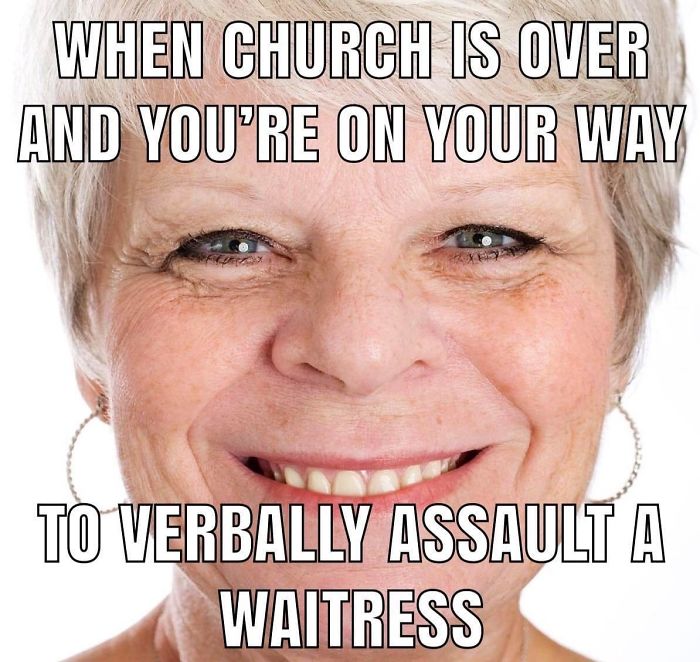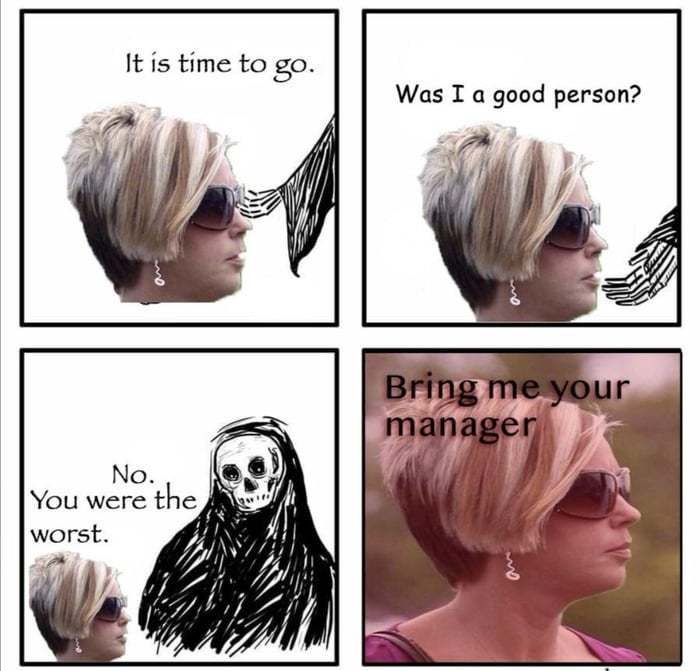Karen Jokes & Memes: From Rifle Accidents To Manager Demands!
Are you tired of encountering individuals whose actions seem to defy logic and common courtesy? The "Karen" phenomenon, a cultural touchstone of the modern era, has become a subject of fascination, amusement, and sometimes, consternation.
The term "Karen" has evolved from a simple name to a cultural shorthand, representing a specific archetype: a woman perceived as entitled, often demanding to speak to the manager, and frequently exhibiting a sense of superiority. This characterization has permeated online spaces, comedy routines, and everyday conversations, sparking both laughter and debate.
| Category | Details |
|---|---|
| Name Origin | While the exact genesis is debated, early uses in memes and jokes are linked to the 2004 film "Mean Girls" and Dane Cook's 2005 sketch "The Friend Nobody Likes." The character's name is "Karen" |
| Stereotypical Behavior | Characterized by demands to "speak to the manager," a sense of entitlement, and a tendency to complain about minor inconveniences. Often associated with specific hairstyles and an air of perceived superiority. |
| Online Presence | Prevalent in memes, subreddits (such as "r/fuckyoukaren"), and social media platforms, where users share jokes, stories, and observations about "Karen" behavior. |
| Cultural Impact | Has entered mainstream vocabulary, used to describe individuals perceived as acting in an entitled or demanding manner. The term has also drawn criticism for potentially being sexist and offensive. |
| Examples in Media | The character has appeared in various forms across different media, including the "Mean Girls" film (2004), an antisocial Karen from the Nintendo Switch meme (2016) and the Goodfellas film. |
| Controversies | Some consider the term offensive or sexist, particularly when used against women. Businesses and brands, such as Domino's Pizza, have had to apologize over promotions that used the term in their campaigns. |
| Humorous Applications | Karen jokes are widespread, utilizing the stereotype for comedic effect. These jokes are intended as a lighthearted commentary on the phenomenon. |
| Real-life encounters | Many individuals have shared their experiences interacting with people who fit the "Karen" stereotype, often in retail settings, customer service scenarios, and public spaces. |
The phrase "Karen" has permeated the cultural lexicon, becoming a shorthand for a specific type of person. This individual, often portrayed as a white woman, is characterized by a sense of entitlement and a proclivity for demanding special treatment. The "Karen" meme, born online, gained significant traction during the spring of 2020, fueled by internet humor and the backdrop of the coronavirus pandemic. This period saw the rise of jokes and memes, often featuring a sarcastic cat, humorously depicting a woman's desire to "speak to the manager."
From the mundane to the absurd, the actions attributed to "Karens" are fodder for comedic content. Consider, for example, "Karen brought her own spices to the restaurant because she likes to take matters into her own blends," or "When Karen goes to the beach, she doesn't sunbathe." These jokes playfully highlight the stereotypical behaviors associated with the "Karen" persona, highlighting the absurd complaints, unwarranted demands, and an exaggerated sense of entitlement.
The origins of the "Karen" archetype are somewhat murky, but some of the earliest uses of the name as a punchline can be traced back to the airheaded character Karen (played by Amanda Seyfried) from the 2004 film "Mean Girls." The quote "Oh my god, Karen, you can't just ask someone why they're white," from the same film, is a popular meme. Another potential origin point is Dane Cook's 2005 sketch "The Friend Nobody Likes," included on his album "Retaliation." Also, the 2016 internet meme regarding a woman in an ad for the Nintendo Switch console who exhibits perceived antisocial behavior is considered.
The phenomenon extends beyond mere humor. The "Karen" meme sparked debates on social media, particularly concerning its potential to be offensive or sexist. Some argue that the term unfairly targets women, while others see it as a humorous way to critique certain behaviors. Matt Schimkowitz, Senior Editor at Know Your Meme, offered insights into the phenomenon, commenting on its popularity and the varying perspectives surrounding it.
The term is not without its detractors. Many argue that "Karen" jokes can be offensive and sexist, particularly when directed at white people. It's important to acknowledge that, according to the Illinois Human Rights Act, employers cannot discriminate or create a hostile work environment based on someones race, color, or perceived race. Consequently, if a "Karen" joke causes personal offense, the individual has the right to express their discomfort and request that the behavior be stopped.
The cultural impact of the "Karen" meme has been substantial. From the earliest jokes to the more hostile tones that emerged during the pandemic, the term became an easily recognized symbol of a specific type of behavior. In September 2019, tropical storm "Karen" inspired a wave of online jokes and memes, further solidifying the term's place in popular culture. The top definition on Urban Dictionary, dating back to November 27, 2019, describes a "Karen" as someone who fits a particular set of traits.
The "Karen" phenomenon isn't just about online jokes. Many individuals have shared real-life encounters with "Karens," often in retail settings or other service-oriented environments. The frustrations these individuals have encountered have become common themes in the "Karen" narratives.
The humor surrounding "Karens" offers a way to navigate these tense situations. The jokes serve as a humorous reminder that politeness can diffuse tense situations and even elicit a chuckle or two. These jokes can be found on various platforms, including dedicated subreddits like "r/fuckyoukaren," which is devoted to mocking the character in jokes that characterize Karen as annoying.
The emergence of the "Karen" stereotype reflects a broader cultural shift in how people interact with each other and with customer service. While some see the jokes as harmless fun, it is crucial to consider the potential for offense and the responsibility to treat others with respect, regardless of their behavior.
This article provides a multifaceted view of the "Karen" phenomenon, exploring its origins, its manifestations in popular culture, the debates surrounding its use, and its cultural implications. It is intended to offer an objective perspective on a complex and ever-evolving cultural trend.


